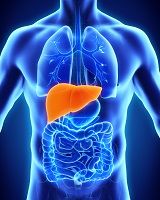Article
Liver Transplant: Ribavirin Not Necessary to Prevent HCV Recurrence
Author(s):
Liver transplant specialists looked at whether post-transplant hepatitis C patients could safely eliminate ribavirin (RBV) from their drug regimens. They found they could.

Patients with hepatitis C infection aren’t out of danger from the virus even after a successful liver transplant. But because they immune-compromised due to taking anti-rejection drugs, treatment is tricky. Reporting at the Liver Meeting in San Francisco, CA, Molly Hassett, MD of Vanderbilt University Nashville, TN, and colleagues reported on drug regimens for these patients.
They looked at whether these patients could safely eliminate ribavirin (RBV) from their drug regimens. They found they could.
Patients who had recurrent HCV infection after a transplant got 12 weeks of therapy with either simeprevir/sofosbuvir or ledipasvir/sofosbuvir without ribavirin.
“Given the unique characteristics of this immunosuppressed population the current clinical guidelines continue to recommend treating patient with recurrent HCV GT-1 infection with regimens that contain ribavirin when treating for 12 weeks or extending therapy to 24 weeks in those intolerant to RBV,” they noted.
But RBV can cause anemia and worsen renal function in the setting of nephrotoxic immunosuppression.
The team looked at 66 liver transplant patients who had recurrent HCV infection who were treated both with and without RBV. None of the patients treated without RBV had to interrupt of discontinue therapy due to adverse events, the team reported.
The researchers said they “observed excellent responses when treating liver transplant patient with recurrent HCV GT1 using combinations of SIM/SOF of LDV/SOF without ribavirin for 12 weeks.
“Further corroboration of these data may result in the elimination of the need for RBV” in post-transplant patients.




